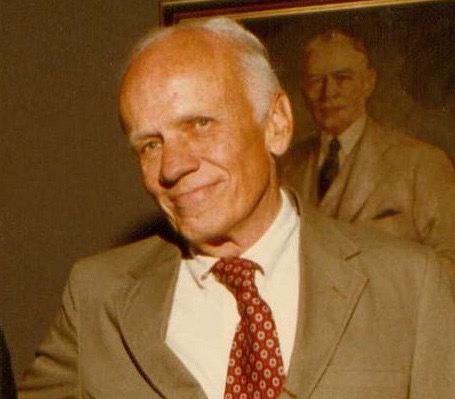Before Walker Percy was an award-winning author, before he was exploring the “dislocation of man in the modern age” or questioning southern sensibility in praise-garnering pages, he was a man not unlike many of us: wandering, depressed, studying for a career he didn’t want to have in the midst of a quarter life crisis.
By the age of 16, Percy was orphaned. Both of his parents had committed suicide, a tragic familial legacy going back several generations. He was adopted by his uncle Will, an acclaimed southern gothic poet and novelist, and grew up surrounded by creative geniuses. Langston Hughes would visit their home. William Faulkner was a family friend. His neighbor and best friend was Shelby Foote. Percy was a misfit among these creative geniuses.
He recalls a visit with Foote and Faulkner where he awkwardly watched the two of them speak endlessly about literature while he sat in the car watching, unsure of what to say. After his first writing assignment at Columbia, he was judged to be “language-deficient” and placed in a remedial writing class. He decided to study medicine.
In college, Percy says he “learned many things, but not the most important things.” A probing existential void gnawed him with questions about the purpose of existence. He was marauded by the shadow of his parents response to that question, and he feared coming to their same conclusions. College, he explained, “ought to be the best of times, but is, often as not, a time when places, people, things, green leaves seem to be strangely diminished and devalued.”
Movies became his escape. “For a lot of people, the movies provide important moments, maybe the only point in the day, or even the week, when someone (a cowboy, a detective, a crook) is heard asking what life is all about, asking what is worth fighting for - or asking if anything is worth fighting for.”
At the prodding of his uncle, Percy started a regimented psychotherapy treatment. For three years he went to a psychoanalyst five days a week, but very little was uncovered except perhaps romantic interest in the psychoanalyst, and, as he explains in a letter to his uncle, that he didn’t want to be a doctor, he didn’t want to be anything in particular.
“Glory and accomplishment are of far less importance than the creation of character and the individual good life,” he explained. And that was what he was looking for, “the good life.”
Several years later his Uncle Will passed away. The fiery closing words of his final novel were read at his funeral.
“We of my generation have lost one line of fortification after another...we are watching the followers of Jesus and Buddha and Socrates being driven from the face of the earth. But there’s time ahead, thousands of years: there is but one good life and men yearn for it and will again practice it, though of my contemporaries only the stars will see… Perhaps only flames can rouse a man from his apathy to his destiny.”
At this time Percy was diagnosed with tuberculosis and placed in a sanatorium for three years (the only known method of recovery at the time). He could no longer escape to the movies, essentially caged with his mind in the silence of a hospital bed. There were two paths: despair, or continuing the search. He wrote, “To become aware of the possibility of the search is to be onto something. Not to be onto something is to be in despair.”
He continued the “search.” He immersed himself in philosophy; his discovery of Sartre’s belief that the novel can be “an instrument of diagnosis” turned his conventional notions of health and medicine upside down. In a letter he writes:
“The apparently well are sick and the sick are on to the truth, and the symptoms of their sickness- anxiety, solitariness, loss of meaning are the very signs that they are onto something, appropriate responses to a revelation of the way things are and the way people are.”
Percy would play the doctor after all, responding to the fiery sermon his Uncle Will left in the last pages of his book. He would diagnose cultural anomie through impassioned fingers on a keyboard.
“Catholicism considers the human person part angel, part beast. It locates the divided human nature at the center of its scheme and asks the right questions: Why are so many of us unhappy? Why is there such cruelty in the world? It also gives us a powerfully suggestive answer.” In becoming Catholic Percy sought to diagnose his own happiness and remedy it. In becoming a novelist he sought to remedy it for everyone else.
The rest of the story is more commonly known. The part where he gets married. Where he and his wife are received into the Catholic Church. His two daughters. The part where he writes The Moviegoer, The Last Gentleman, Love in the Ruins, and becomes an esteemed writer in literary circles while also a deeply valued Catholic writer, "whose genius has ennobled the arts and sciences, illustrated the ideals of the Church, and enriched the heritage of humanity."
But for the “seer of existentialists,” those in the throes of bewildering discernment, theological questions, or loss of identity, that’s not the part we need to hear. We need to hear about the Walker Percy before he was Walker Percy.
Casey McCorry is a documentary filmmaker, wife and mother.
Start your day with Always Forward, our award-winning e-newsletter. Get this smart, handpicked selection of the day’s top news, analysis and opinion, delivered to your inbox. Sign up absolutely free today!

